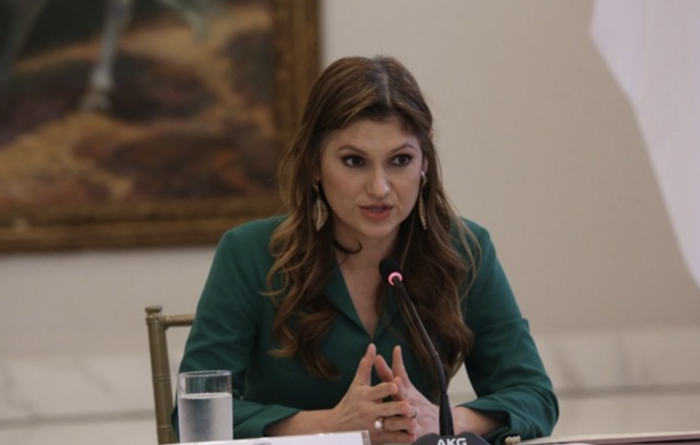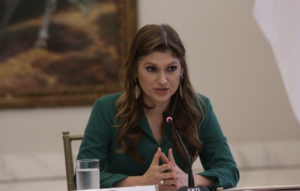As a state issue supported by the team of the Foreign Ministry and foreign ministers of past administrations, it is as the Minister of Foreign Affairs and Chancellor of the Republic, Erika Mouynes, considers that the country’s candidacy for a seat on the Security Council of the United Nations must be addressed.
This was explained by Mouynes during a meeting with eleven of the foreign ministers who preceded her in office, stressing that Panama must handle this and other international commitments such as its participation in multilateral forums with state policy as well as the candidacy for the Security Council involving several administrations to exercise institutionality.
Mouynes stated that the opportunity to participate in the United Nations Security Council in the period 2025-2026 is an opportunity that may not be repeated in at least 34 years, considering the agreed candidacy system and the list of countries with interest already expressed.
Within the road map discussed, the Panamanian candidacy process begins with aggressive lobbying to generate the necessary support for the vote, which will take place in June 2024.
Minister Mouynes stressed the need to rely on the professional team of the Foreign Ministry, preparing and immediately following up on the issues discussed in the Security Council.
“The technical capabilities of a robust institutional team are key to high-level participation in a platform as important as the Security Council,” Minister Mouynes said.
If Panama’s candidacy is successful, from July 2024 it must actively participate in all meetings of the Security Council, including preparatory meetings. In this regard, Chancellor Mouynes stressed to the former foreign ministers present, the need to handle the candidacy “as a commitment of the country” to reach a seat in the most important multilateral space for the maintenance of international peace and security.
The process, which began in March 2012 with the formal presentation of the candidacy and will culminate in the vote in the General Assembly in the first week of June 2024, covers four administrations, planning that endorses the institutionalization of Panamanian diplomacy and the country’s ongoing commitment to the United Nations system, of which Panama was a precursor and founding partner.
A non-permanent member of the Security Council on five other occasions (1958-1959, 1972-1973, 1976-1977, 1981-1982 and 2007-2008), Panama has been the only regional headquarters of this forum outside the United Nations campus, in New York, during the period 1972-1973, when it took advantage of its participation to internationalize the sovereign cause, an issue that
“Panama must be technically prepared to maximize participation in the United Nations Security Council. This allows us to consolidate our international image as a relevant player in the most important multilateral system,” the Foreign Minister said about the plan under implementation.
The meeting with the former foreign ministers, held at the headquarters of the Ministry of Foreign Affairs, “has been an opportunity to evaluate the most technical aspects of the candidacy and what it represents for the country, demonstrating that we are a mature and capable diplomacy, and consolidating Panama as a valid interlocutor with a tradition of dialogue and in favor of peace that the world recognizes,” Minister Mouyne

